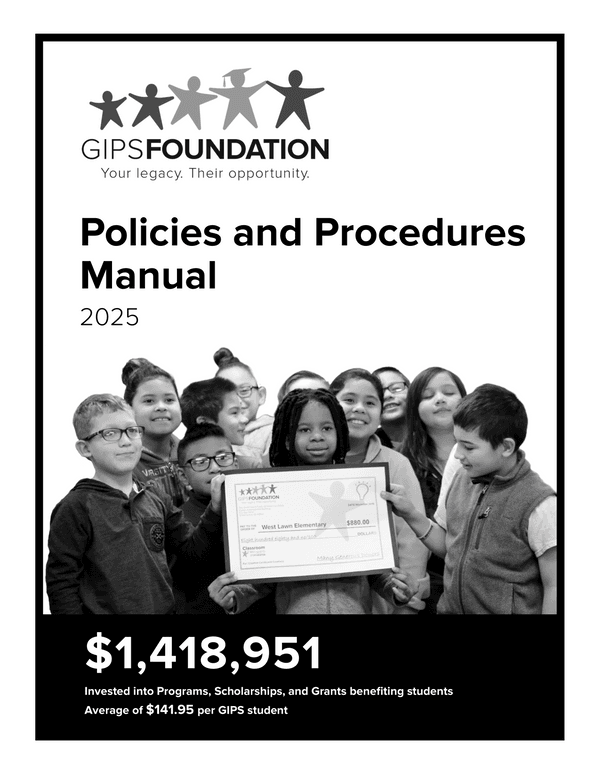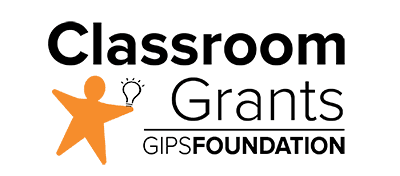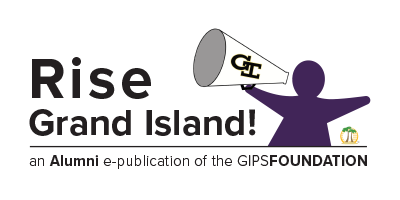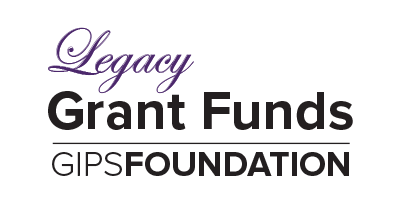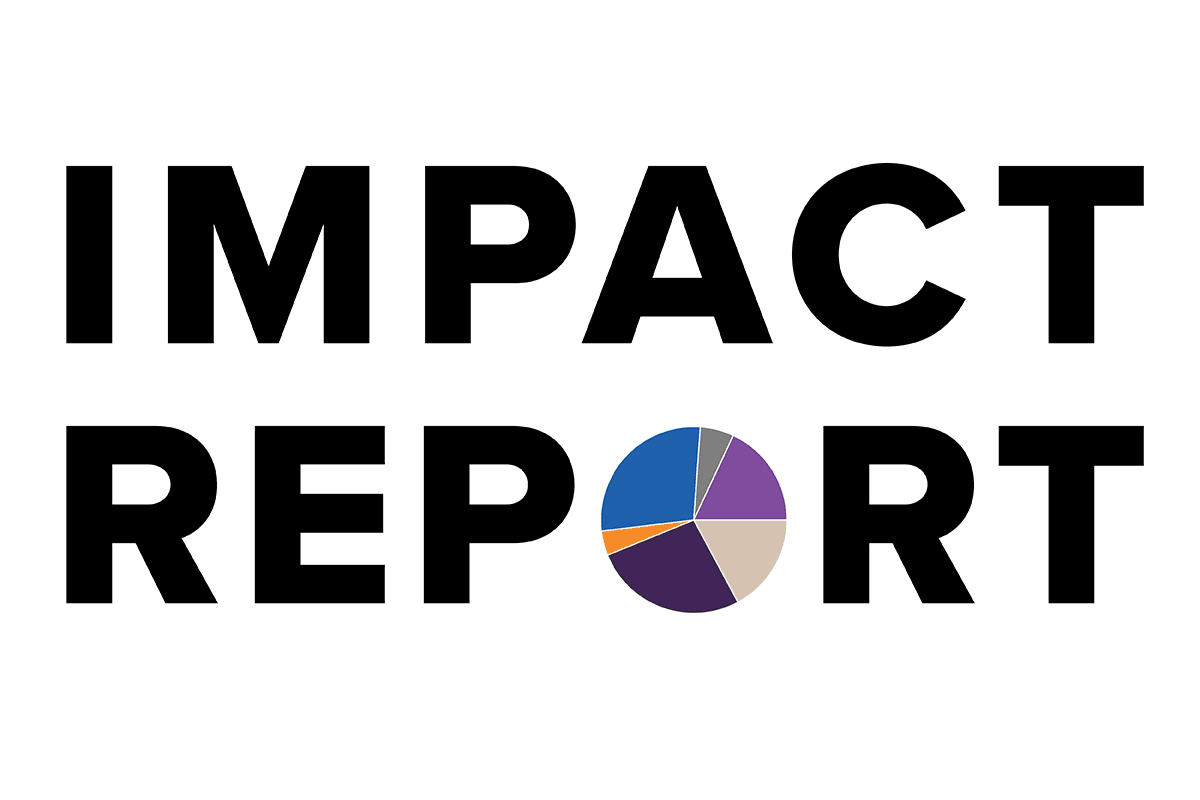Mission Statement
The GIPS Foundation builds strong partnerships with the district and community stakeholders, responsibly manages and grows charitable assets, and inspires the power of community to invest in access, equity and opportunity for all GIPS students.
Vision Statement
We envision Grand Island Public Schools as a place where all students experience a rich educational journey with robust opportunities to prepare them to thrive and dream big. Every GIPS student will have adequate resources to attain their potential.
Values Statement
The Grand Island Public Schools Foundation’s programs and services will remain flexible and responsive to students, staff and district needs.
We will:
- Adhere to the highest ethical standards
- Manage the Foundation and its assets with integrity and transparency
- Cultivate a culture of trust
- Advocate for GIPS students and all students in our community and beyond
- Inspire and foster a partnership of shared values with GIPS Staff
- Build and steward community partnerships, galvanizing relationships for perpetual impact
- Invest in innovation and opportunity
- Help donors achieve their philanthropic goals to invest in students



